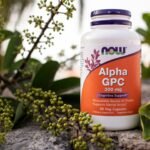Understanding the Importance of Protein in Athletic Performance
Protein is an essential macronutrient that plays a pivotal role in supporting athletic performance. Athletes require adequate protein intake to promote muscle recovery and growth, ensuring that their bodies can withstand the demands of rigorous physical training. As they engage in high-intensity workouts, muscle fibers undergo stress and, consequently, micro-tears. Protein assists in repairing these tears, leading to enhanced muscle strength and development.
The recommended protein intake for athletes typically ranges from 1.2 to 2.0 grams of protein per kilogram of body weight, depending on the type and intensity of the sport. Endurance athletes may aim for the lower end of this range, while strength and power athletes often require the higher end. This elevated need for protein underscores its significance in an athlete’s diet, as inadequate protein can hinder performance, increase recovery time, and elevate the risk of injuries.
Moreover, protein contributes to various physiological functions within the body. It serves as a building block for enzymes and hormones, which are crucial for metabolic processes. Additionally, protein is involved in the synthesis of neurotransmitters that can influence mood, focus, and overall mental resilience. These factors are especially significant during competition and training, where a sharp mental state can enhance performance outcomes.
Beyond muscle repair and synthesis, protein sources can also aid in maintaining energy levels and endurance. While carbohydrates are typically the primary energy source for athletes, protein has a role to play as well. When carbohydrate stores are depleted, the body can tap into protein for energy, particularly during prolonged physical activity. Thus, ensuring an adequate protein intake can help sustain energy levels and improve an athlete’s stamina and overall physical health.
Top Plant-Based Protein Sources for Athletes
As athletes increasingly seek to optimize their diets, plant-based protein options offer a diverse range of alternatives that are both nutritious and beneficial for performance. Key protein sources include lentils, chickpeas, quinoa, nuts, seeds, and plant-based protein powders, each offering unique nutritional profiles that cater to the needs of active individuals.
Lentils, for example, are an excellent source of protein, providing approximately 18 grams of protein per cooked cup. They are also rich in iron, which supports oxygen transportation in the body, and fiber, promoting digestive health. Varieties such as green, brown, and red lentils offer a range of culinary uses, making them versatile additions to any athlete’s diet.
Chickpeas, or garbanzo beans, also serve as a powerful protein source, containing around 15 grams of protein per cooked cup. They are abundant in important minerals, including manganese and folate, and are recognized for their ability to help maintain energy levels during prolonged exercise. Incorporating chickpeas into salads, stews, or as hummus can enhance overall nutritional intake.
Another notable mention is quinoa, a complete protein source containing all nine essential amino acids, with about 8 grams of protein per cooked cup. This gluten-free grain is packed with antioxidants and has anti-inflammatory properties, making it an ideal choice for post-workout recovery meals.
Nuts and seeds, such as almonds, chia seeds, and hemp seeds, are not only rich in protein but also provide healthy fats and various micronutrients. For instance, one ounce of almonds contains around 6 grams of protein, while hemp seeds offer approximately 10 grams per ounce. These foods support heart health and can easily be added to smoothies, yogurt, or salads.
Lastly, plant-based protein powders, derived from sources like pea, rice, and hemp, provide convenient protein supplementation, often containing around 20-25 grams of protein per serving. They can enhance recovery and contribute to muscle growth when consumed post-exercise.
Incorporating these plant-based protein sources can help athletes meet their nutritional needs while also benefiting overall health and performance.
Benefits of a Plant-Based Diet for Athletic Performance
Adopting a plant-based diet offers numerous advantages that can significantly enhance athletic performance. One of the most notable benefits is the potential for improved recovery times. Foods rich in antioxidants, which are prevalent in fruits, vegetables, and whole grains, combat oxidative stress that occurs during intense exercise. This can lead to quicker recovery and reduced muscle soreness, allowing athletes to train more effectively and consistently.
In addition to recovery, a plant-based diet can help in reducing inflammation. Many athletes suffer from chronic inflammation stemming from high-intensity training regimens. Plant-based foods, especially those high in omega-3 fatty acids such as flaxseeds and chia seeds, have been demonstrated to possess anti-inflammatory properties. A decrease in inflammation translates to better overall performance and longevity in competitive sports.
Cardiovascular health is another critical area where plant-based nutrition excels. Athletes with better cardiovascular health tend to perform with greater endurance. Plant-based diets are typically lower in saturated fats and cholesterol while being high in fiber, promoting heart health. Numerous studies have shown that a diet abundant in plant-based foods can lead to lower blood pressure and improved circulation, both of which are highly beneficial for athletes.
It is a common misconception that plant-based diets do not provide sufficient protein or essential nutrients. However, notable athletes such as track and field Olympians and professional bodybuilders have dispelled these myths through their personal success stories. Research indicates that a well-planned plant-based diet can meet all protein needs through sources like legumes, nuts, seeds, and whole grains. Furthermore, such diets have been associated with enhanced mental clarity and sustained energy levels, allowing athletes to maintain focus during training and competition.
Creating a Balanced Plant-Based Meal Plan for Athletes
Designing a balanced meal plan that incorporates plant-based proteins is crucial for athletes aiming to optimize their performance and recovery. A well-rounded approach not only enhances energy levels but also ensures sufficient intake of all essential nutrients. Start by including a diverse array of plant-based protein sources such as legumes, nuts, seeds, whole grains, and fortified plant-based dairy alternatives. Each of these food categories provides crucial amino acids and nutrients necessary for muscle repair and overall health.
To create a balanced meal plan, athletes should focus on incorporating protein-rich foods throughout the day. Breakfast options can include a smoothie made with plant-based protein powder, spinach, and a banana, or oatmeal topped with almond butter and chia seeds. For lunch, consider a quinoa and black bean salad with mixed vegetables and a vinaigrette dressing, which combines quality protein with fiber-rich carbs. Dinner could feature a stir-fry with tofu, a variety of colorful vegetables, and brown rice or whole grain pasta.
Pre- and post-workout snacks are also essential for maintaining energy levels and promoting recovery. Ideas for pre-workout snacks may include energy balls made from dates, oats, and nut butter, ensuring you have a quick digestible source of energy. Post-workout, a smoothie with banana and plant-based protein powder can help in muscle recovery.
Athletes should also pay attention to nutrient timing, aiming to consume meals that combine carbohydrates and plant-based proteins ideally within a two-hour window around workouts. To address potential challenges, such as insufficient protein intake, meal prepping can be beneficial. Preparing large batches of meals at once can facilitate adherence to a balanced diet. Overall, careful planning and preparation can ensure athletes effectively meet their dietary requirements while enjoying the benefits of a plant-based lifestyle.


